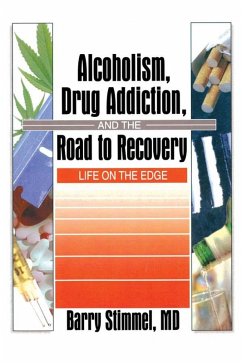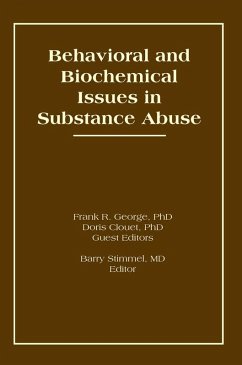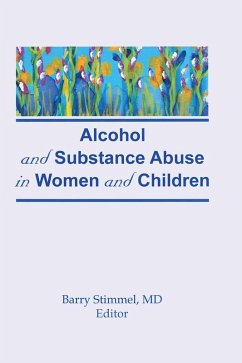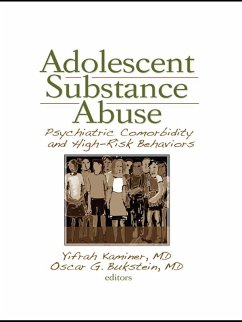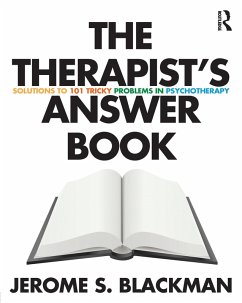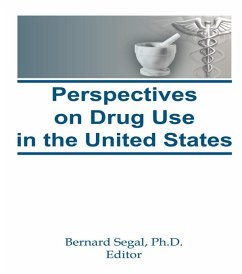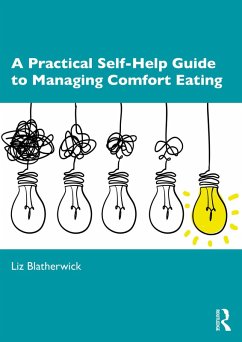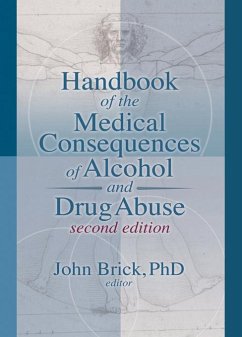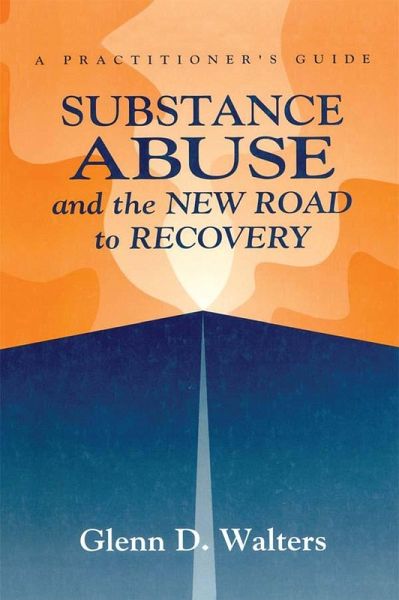
Substance Abuse And The New Road To Recovery (eBook, PDF)
A Practitioner's Guide

PAYBACK Punkte
21 °P sammeln!
Substance misuse is one of the more common, yet baffling, problems confronting the practising mental health professional today. The issues involved in the misuse of substances can be so complex that some practitioners are inclined to avoid working with clients who have been diagnosed with a drug abuse problem.; This new guidebook is designed to assist clinicians with the task of conceptualizing, understanding and intervening with persons who abuse substances. It accomplishes this by offering practical suggestions, assessment procedures, and change strategies directed at the thoughts, feelings ...
Substance misuse is one of the more common, yet baffling, problems confronting the practising mental health professional today. The issues involved in the misuse of substances can be so complex that some practitioners are inclined to avoid working with clients who have been diagnosed with a drug abuse problem.; This new guidebook is designed to assist clinicians with the task of conceptualizing, understanding and intervening with persons who abuse substances. It accomplishes this by offering practical suggestions, assessment procedures, and change strategies directed at the thoughts, feelings and behaviours believed to support a drug lifestyle. Although the approach described in this book utilizes a number of cognitive-behavioural techniques, the approach is unique in the sense that it also deals with the fear of change that frequently interferes with a client's ability to benefit from therapy. It also considers change strategies used by people who have escaped from a drug lifestyle without any type of treatment or formal intervention.; Momentarily arresting the lifestyle is the first step of intervention. This is followed by skill development in which the conditions, choices and cognitions associated with a drug lifestyle are targeted for intervention and change. In the final phase of this approach, the client is engaged in the resocialization process whereby he or she is encouraged to develop ways of thinking and behaving that are incompatible with continued misuse of psychoactive substances. The end result is a concise, yet comprehensive, examination of ways clinicans might facilitate change in persons previously committed to a drug lifestyle.
Dieser Download kann aus rechtlichen Gründen nur mit Rechnungsadresse in A, B, BG, CY, CZ, D, DK, EW, E, FIN, F, GR, HR, H, IRL, I, LT, L, LR, M, NL, PL, P, R, S, SLO, SK ausgeliefert werden.




